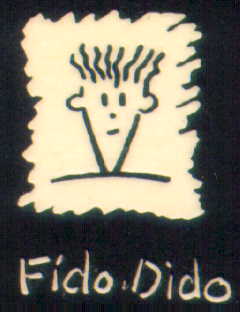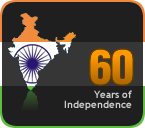The Broken Window….............
One more of a routine day and I board the train to my office. My ears get hooked to a conversation between two Gujarati guys. It’s a typical discussion on India bashing. Cries about lack of facilities and basic amenities. Also on the attitude of Indians regarding cleanliness, politeness and overall civic sense. But the irony of their whole discussion was that they themselves were using abusive language while occasionally giving relief to their mouths by spitting the toxic pan masala/zarda on the tracks.
This is not a rare phenomenon as we all indulge in this kind of hypocrisy. We all shout our lungs out that the country is going nowhere. It’s the typical Indian portrayed perfectly in “Rang de Basanti”. This reminds me of an excellent article written by our president Mr. APJ Kalam - wherein he has the vision of making India a superpower by 2020.He argues that we all appreciate how clean other countries are and takes a case in point of Singapore, where you are heavily fined on throwing rubbish or spitting on the streets. But nobody is happy about fines when it comes to India. He also points that the same Indians, who have been to the “clean” countries, indulge in littering once they return.
After much thought on finding the reasons as to why this happens, I stumbled upon a likely answer. Some months back I was reading “The Tipping Point” by Malcolm Gladwell wherein he has explained the concept of “Broken window”. It’s a simple concept of people throwing stones at a broken window just because no one cares to mend it. The same applies to littering. We won’t hesitate to litter at places which are already littered. The problem will be eased - not solved, if the places littered, are cleaned spick and span every time they are abused. The developed countries are kept clean and this to an extent discourages others to litter around. Of course civic sense is something which needs to be aroused in each and every citizen.
Coming back to the focal point of writing this post. One of my ex-boss used to give us a very sane advice. He used to tell us that we should not approach him with only problems but instead recommended us to think through the problem, try to figure out a solution before approaching him. In his own words, “Don’t come with problems, come with solutions.” Though, at that time, I rubbished this as just another management gyan – but now seem to appreciate it.
Will like to share an experience about how we can contribute, howsoever small, towards making a better society but break ke baad ;) - i.e. in the next post.........
This is not a rare phenomenon as we all indulge in this kind of hypocrisy. We all shout our lungs out that the country is going nowhere. It’s the typical Indian portrayed perfectly in “Rang de Basanti”. This reminds me of an excellent article written by our president Mr. APJ Kalam - wherein he has the vision of making India a superpower by 2020.He argues that we all appreciate how clean other countries are and takes a case in point of Singapore, where you are heavily fined on throwing rubbish or spitting on the streets. But nobody is happy about fines when it comes to India. He also points that the same Indians, who have been to the “clean” countries, indulge in littering once they return.
After much thought on finding the reasons as to why this happens, I stumbled upon a likely answer. Some months back I was reading “The Tipping Point” by Malcolm Gladwell wherein he has explained the concept of “Broken window”. It’s a simple concept of people throwing stones at a broken window just because no one cares to mend it. The same applies to littering. We won’t hesitate to litter at places which are already littered. The problem will be eased - not solved, if the places littered, are cleaned spick and span every time they are abused. The developed countries are kept clean and this to an extent discourages others to litter around. Of course civic sense is something which needs to be aroused in each and every citizen.
Coming back to the focal point of writing this post. One of my ex-boss used to give us a very sane advice. He used to tell us that we should not approach him with only problems but instead recommended us to think through the problem, try to figure out a solution before approaching him. In his own words, “Don’t come with problems, come with solutions.” Though, at that time, I rubbished this as just another management gyan – but now seem to appreciate it.
Will like to share an experience about how we can contribute, howsoever small, towards making a better society but break ke baad ;) - i.e. in the next post.........




2 comments:
Yup, Agreed in total. Even with the Broken Window theory.
This had happened with me once, where a person had boarded a local train and was waiting for it to start. He was eating something and after he finished it, he simply threw the paper on the tracks. For some reason, I was so disturbed by that, that I asked him not to do that. His response - Don't worry. Nobody will catch [me littering] here.
To take your thoughts further, it was the New York citizens' groups that ultimately converted NY to what the city is today. Even the Juhu beach and Bandra Bandstand areas in Mumbai are results of citizens' activities.
But my thinking is that India, or even Mumbai if we look at a smaller area, has more things to worry about. The clean-up in NY happened only happened when crime became one of the biggest problems faced by the people there. I don't expect Mumbai to work towards this till there is actually a threat of extinction to the 'Spirit of Mumbai'.
It would be good enough if we Mumbai-ites do something about the crumbling infrastructure for a start.
What say?
I think problem with india is that it has too many of everything like too many gods too many politicians and too many parties. It may be best way to survive for this many years but not the best way to grow as there is a quote a"Growing old is inevitable, growing up is optional" and thats why what was sais in Mahabharat and by Buddha is still valid.
Chintan
Post a Comment